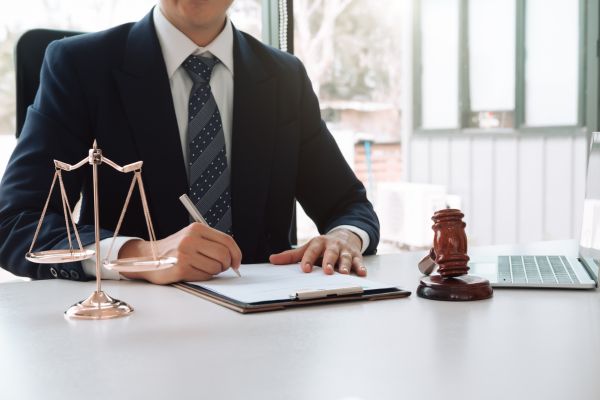The first thing that comes to our mind when the word democracy pops up is “FREEDOM OF SPEECH”. A democracy, therefore, is defined by the freedom a country gives its citizens to speak or criticize their government freely. Otherwise without freedom of speech, democracy is merely a facade. With the technological innovations, there have been debates on the right to speech especially concerning the digital age. With the increasing technological innovations day by day, there has been an increase in the problems, especially with their most prominent fundamental right i.e. free speech. The second problem is the internal disturbance a country might face like the propaganda against a country or government by maybe another country or a group with a particular ideology falling against an individual or a government or whole country. These are just some problems that affect a fundamental right.
Freedom Of Speech
The freedom of speech has been reshaped with the introduction of the digital age; The digital age has reshaped the concept of freedom of speech. Right, to free speech enshrined in article 19(1) (a) of the Indian constitution gives us the right to speak as a citizen and is enforceable against the state. The main objective of this fundamental right is so that individual can freely speak and express their emotions freely without any apprehension and detention by the authorities thereby upholding the prime principle of democracy.
However, this right is not absolute. Article 19(2) outlines specific grounds on which the state can impose reasonable restrictions. These include considerations related to national security, public order, decency, morality, contempt of court, defamation, and incitement to an offense. Such restrictions aim to balance individual freedoms with societal interests, ensuring that the exercise of free speech does not infringe upon the rights of others or threaten public safety.
International statutes such as the Universal Declaration of Human Rights (UDHR) 1948, the International Covenant on Civil and Political Rights the European Convention on Human Rights and Fundamental Freedom were some of the first statutes created to which India is a signatory which guaranteed the right to freedom of speech. Another important feature of the right to speech in India is the right not to speak which is the foundation of the right to self-incrimination as enshrined in Article 20(3) of the Indian constitution. Maneka Gandhi v. Union of India[1] expanded the scope of this freedom by asserting that it includes not just speaking but also receiving information and ideas through any medium. This judicial approach reflects an understanding that free speech is vital for individual autonomy and societal progress.
Free Speech And Digital Media
To understand these 2 issues first we need to understand the concept of digital media, it essentially refers to any media in digital format that can be broadcasted through a mic or a speaker. The following also includes text, audio, and video that can be transmitted via the Internet to view or listen.
On one side digital media blooming and empowering citizens to express their views and discontent to the government on one hand. It has a democratizing effect on our people. It has prompted people to openly show their discontent towards policies and different norms and even issues like international relations. In doing so they exercise their right to speak freely by reshaping the narratives made by society and challenging the norms. [2]
With more than 800 million users India is one of the largest users of digital data, with individuals being connected from different parts of India with different cultures, norms, and traditions. Every individual exercising their right to free speech enshrined in Article 19 of the Indian constitution.
But it is where a double-edged sword pops up it has certain “reasonable restrictions” which can be put up by the state to free speech under certain circumstances.[3]
In February 2021 Information Technology (Intermediary Guidelines and Digital Media Ethics Code) Rules were passed in India. The rules were designed to regulate digital media and OTT streaming services to curb disinformation and save users from harmful content. However, the regulation encountered strong opposition. Critics of the policy argued that the regulations would
give the government enough powers to put down and suppress the content thus violating the principle of freedom of expression and innovation. Given that the laws given in the constitution having withstood the test of time are not enough for the things of the digital age and hence these laws were necessary. The laws should balance between disinformation and the freedom of expression by a person thereby not violating his rights. Furthermore, the government should safeguard the individual’s right to free speech and uphold the principles of democracy.
Not just the government but the organization, NGOs are an inseparable part of this journey. By demanding the policies through the way of public cognizance and through participating in the government decision-making and taking necessary action against the harmful content, these people can significantly contribute to defining the future actions by the government and also defining the future landscape of India in the field of free speech and digital media. [4]
Secondly, civil society also has a crucial role in safeguarding free speech and bolstering the constitutional rights of the citizens of India. These involve crafting new digital laws for the citizens and defending the constitutional rights of the citizens. Furthermore, acting as a mediator between the government and the people can also work in framing new policies and suggesting the government make laws in the public interest.
Conclusion
In a country that is being run by the phrase “unity in diversity” as its foundational ethos. The freedom of speech becomes more prominent. Article 19 has done the safeguarding of the rights of the individuals but the digital age has brought barriers to its constitutional safeguard. However, the darker side of this stands as disinformation such as sowing discontent against an individual a government, or even a whole country. Thus, it becomes even more necessary to let freedom of speech and law go hand in hand. Technology has made the world freer but has also become the breeding ground for abuse whose one form can be said as online abuse. Hence, laws are necessary to be formulated while safeguarding the principles of free speech. One such measure can be increasing media literacy and teaching the individuals of a country to evaluate the information so that fake news can be contracted.
As The state of madras [5]Patanjali Sastri observed that “Freedom of speech and the press lay at the foundation of all democratic organizations, without free political discussion and no public education, so essential for the proper functioning of the process of popular government, is possible. A Freedom of such amplitude might involve risks of abuse. But the framers of the Constitution may well have reflected Madison, who was the leading spirit in the preparation of the First Amendment of the Federal Constitution that it is better to leave a few of its noxious branches to their luxuriant growth than by pruning them away, to injure the vigor of those yielding the proper fruits.”
We also need to frame laws that should not offend the sentiments of our liberals. Thus, we should frame laws that should go hand in hand with the sentiments and the not hurt the freedom of speech of an individual in this digital age. The right to freedom of speech is therefore a fundamental aspect for the democracy of any nation in the world. It is therefore necessary to stand by it and focus on all the aspects for protecting it in all the spheres and we as the citizens of the republic of India must and should standby the fundamental aspect of the democracy whenever someone tries to breach it. away, to injure the vigor of those yielding the proper fruits.”
[1] Maneka Gandhi v Union of India AIR 1978 597
[2] Supra note 2
[3] Civils daily, ‘social media’ https://www.civilsdaily.com/ news/social-media/ accessed October 23, 2024
[4] Rajbir Singh Dalal, ‘Fundamental Rights Enshrined in Indian Constitution: Provisions and Practices’ (2009) 70 The Indian Journal of Political Science 779
[5] A K Gopalan v state of Madras AIR 1950 SC 124
Author: Sharanya Rokade, 3rd year law student studying in Symbiosis law school, Pune






